Бұл материал сайт қолданушысы жариялаған. Материалдың ішінде жазылған барлық ақпаратқа жауапкершілікті жариялаған қолданушы жауап береді. Ұстаз тілегі тек ақпаратты таратуға қолдау көрсетеді. Егер материал сіздің авторлық құқығыңызды бұзған болса немесе басқа да себептермен сайттан өшіру керек деп ойласаңыз осында жазыңыз

Бонусты жинап картаңызға (kaspi Gold, Halyk bank) шығарып аласыз
1 жыл бойы тегін жүктеу мүмкіндігіне ие болыңыз!

жеңілдік
3-сынып FAMILY AND FRIEND кітабы бойынша БЖБ жинағы (барлық тоқсан қамтылған)

Methodological recommendations
for Summative Unit Assessments
on the subject "English"
Course book "Family and Friends"
Grade 3
Oxford University Press
2024 – 2025
Methodological recommendations for Summative Assessment are designed to assist teachers in planning, organizing and carrying out Summative Assessment in “English” for the Grade 3 learners. Methodological recommendations are aligned with the Subject Programme and a Course plan. Summative Assessment in Grade 3 is conducted in Terms 1, 2, 3 and 4.
Summative Assessment Tasks for units will allow teachers to determine the level of the learning objectives achievement planned for the term. Methodological recommendations comprise tasks, assessment criteria with descriptors and marks for conducting Summative Assessment across the unit. Also, this document includes possible levels of the learners’ academic achievement (rubrics). Tasks with descriptors and marks can be considered as recommendations.
Methodological recommendations are designed for secondary school teachers, school administrations, educational departments’ seniors, regional and school coordinators in criteria-based assessment and others.
Contents
|
TERM 1 |
|
Summative assessment for the unit 1 «Hello English» |
|
TERM 2 |
|
Summative assessment for the unit 4 “Weather” |
|
TERM 3 |
|
Summative assessment for the unit 5 «My free time» |
|
Summative assessment for the unit 6 “Health” |
|
TERM 4 |
|
Summative assessment for the unit 7 «Buildings» |
TERM 1.
SUMMATIVE ASSESSMENT TASKS
Summative assessment for the 1st unit "Hello English"
|
Learning objectives |
3.1.4.1 understand basic personal questions; 3.2.2.1 use isolated words and basic expressions to provide personal information. |
|
Assessment criteria |
Identify, remember and sound out high-frequency sound and letter patterns. Respond to basic supported questions giving personal and factual information. |
|
Level of thinking skills |
Application Spell high-frequency words correctly. Present personal information and describe people and objects using forms of the verb "to be." |
|
Duration |
20 minutes |
I. Listening.

Task 1. What do people say when they first meet? Choose:
1. Hi, it’s Pablo. / Hi, I’m Pablo.
2. Hi. Who are you? / Hi. How are you?
3. Where are you? / Where are you from?
4. You are nice. / Nice to meet you
Score:4
Task 2. Write the first 4 colours you hear.

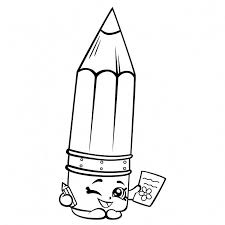



1._________ 2. ___________ 3. _________ 4. _________
Score: 4
II. Speaking.
Task 3.
Speak about you. Use a plan:
1.Hi. My name is….
2. I am… (Age – возраст)
3. I am from….
4. My favourite colour is…….
Score: 4
Total: 12
|
Assessment criteria |
Task |
Descriptor |
Mark |
|
A learner |
|||
|
Identify, remember and sound out high-frequency sound and letter patterns. |
1 |
1. Hi, I’m Pablo. |
1 |
|
2. Hi. How are you? |
1 |
||
|
3. Where are you from? |
1 |
||
|
|
|
4. Nice to meet you. |
|
|
|
2 |
1. red |
1 |
|
|
2. yellow |
1 |
|
|
|
3. green |
1 |
|
|
|
4. blue |
1 |
|
|
Respond to basic supported questions giving personal and factual information. |
3 |
1. uses vocabulary words on the topic; |
1 |
|
2. pronounces words and phrases correctly; |
1 |
||
|
3. uses grammatically correct sentences in a talk; |
1 |
||
|
4. follows word order rules in short statements; |
1 |
||
|
Total marks |
12 |
||
Transcript 1
Sumi: Hi, Pablo. How are you?
Pablo: Hi, Sumi. I'm fine, thanks.
Sumi: Pablo, this is Greta.
Pablo: Hi, Greta, I'm Pablo.
Greta: Hi. How are you?
Pablo: I'm fine, thanks. Where are you from, Greta?
Greta: I'm from Germany. Where are you from?
Pablo: I'm from Argentina. Nice to meet you.
Greta: Nice to meet you too.
Transcript 2
Number 1: R-E-D
Number 2: Y-E-L-L-O-W
Number 3: G-R-E-E-N
Number 4: B-L-U-E
Rubrics for providing information to parents on the results of Summative Assessment
for the unit 1“Hello English”
Learner’s name_____________________
|
Assessment criteria |
Level of learning achievements |
||
|
Low |
Middle |
High |
|
|
Identify, remember and sound out high-frequency sound and letter patterns. |
Experiences challenges in giving correct answers to the questions. Most of the answers are incorrect |
Makes mistakes in defining the members of a family answering the questions according to the pictures. |
Develops the task fully. Confident in identifying questions, answers questions correctly |
|
Respond to basic supported questions giving personal and factual information. |
Experiences challenges in giving personal and factual information. |
Make some mistakes in a word order. |
Addresses the task fully, gives right answers and making the sentences correctly. Follows commands and instructions appropriately |
TERM 1.
SUMMATIVE ASSESSMENT TASKS
Summative assessment for unit 2 “My school”
|
Learning objectives |
3.3.2.1 identify some familiar words and signs on illustrations /pictures in common everyday situations; 3.4.3.1 create a poster or write a postcard, using words and simple phrases |
|
Assessment criteria |
* Read and spell out words. * Apply basic words, phrases and short sentences in a talk or writing about objects. |
|
Level of thinking skills |
Knowledge and comprehension Application |
|
Duration |
20 minutes |
I. Reading
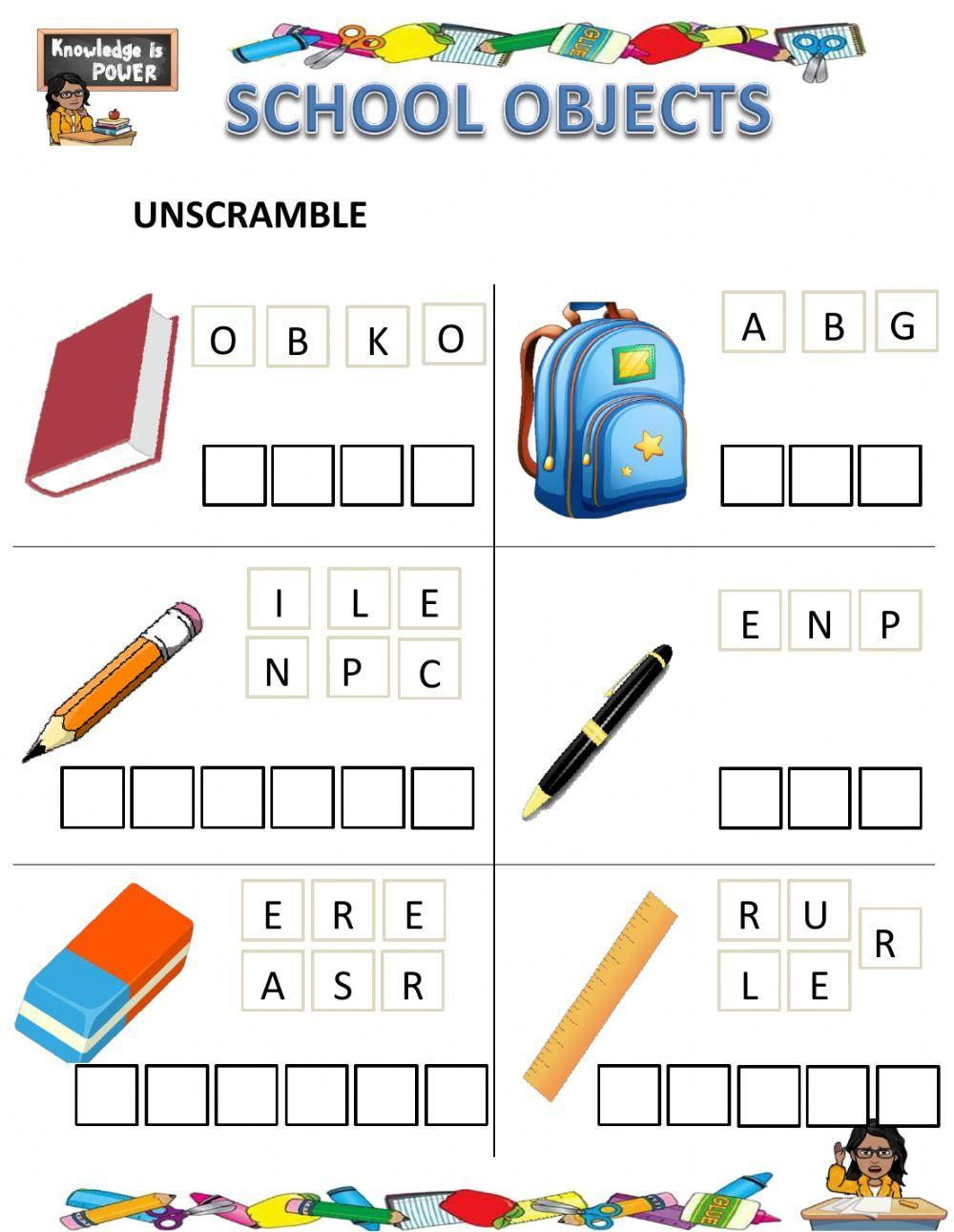 Score:
6
Score:
6
Task 2. Read and fill in: is, are
1. There _____ a book.
2. There _______3 pens.
3. There _____one ruler.
4. There _____ two bags.
Score: 4
II. Writing.
What is in my school bag (4 – 5 sentences)?
Begin with: This is my school bag. There is a ruler in it. I have got ….

 Score:
4
Score:
4
Total:14
|
Assessment criteria |
Task |
Descriptor |
Mark |
|
A learner |
|||
|
Read and spell out words. |
1 |
1. book |
1 |
|
2. bag |
1 |
||
|
3. pencil |
1 |
||
|
4. pen |
1 |
||
|
|
|
5. eraser |
1 |
|
|
|
6. ruler |
1 |
|
|
2
|
1. is |
1 |
|
|
2. are |
1 |
|
|
|
3. is |
1 |
|
|
|
4.are |
1 |
|
|
Apply basic words, phrases and short sentences in a talk or writing about objects. |
3 |
1. uses vocabulary words on the topic; |
1 |
|
2. makes sentences grammatically correct; |
1 |
||
|
3. uses words and short simple phrases to complete a written text at a sentence level. |
1 |
||
|
4. uses has got/ have got; there is/are in a limited range of familiar topics. |
1 |
||
|
Total marks |
14 |
||
Rubrics for providing information to parents on the results of
Summative Assessment for the unit 2 “My school”
Learner’s name_____________________
|
Assessment criteria |
Level of learning achievements |
||
|
Low |
Middle |
High |
|
|
Read and spell out words |
Experiences challenges in matching the words to their pictures |
Makes mistakes in matching the words to their pictures. |
Correctly matches words to their pictures and use a verb to be without mistakes. |
|
Apply basic words, phrases and short sentences in a talk or writing about objects. |
Experiences challenges in writing the words. |
Makes mistakes in defining a correct word. |
Correctly writes words. |
TERM 2.
SUMMATIVE ASSESSMENT TASKS
Summative assessment for unit 3 “People I love”
|
Learning objectives |
3.1.1.1 recognise the sounds of phonemes and phoneme blends in words; 3.1.2.1 recognise familiar words with visual support; 3.4.2.2 use words and short simple phrases to complete a written text at a sentence level. |
|
Assessment criteria |
Identify, remember and sound out high-frequency sound and letter patterns. Apply basic words, phrases and short sentences in a talk or writing about objects. |
|
Level of thinking skills |
Application Higher order thinking skills |
|
Duration |
20 - 25 minutes |
I. Listening
Task 1. Listen and number:

Score:6
Task 2. Circle the correct first sound:
1. [b] – [d] –
[t]
[b] – [d] –
[t]
2. [k] – [d] –
[t]
[k] – [d] –
[t]
3. [k] – [d] –
[t]
[k] – [d] –
[t]
4.
 [a] – [l] –
[t].
[a] – [l] –
[t].
Score: 4
II. Speaking
Speak about your friend/ friends.
You may use a plan:
1. Hi! My name is…...
2. Here are my friends.
3. This is…… He is eight (nine). He has got a bike.
4. That is……. She is……... She has got skates.
5. This is……. He is ………He has got………
6. I love my friends/ them all. Score: 6
Total: 16
Transcript:
1. This is my mother.
2. This is my sister.
3. This man is my father.
4. I have a grandma.
5. I have a grandpa too.
6. This is me.
|
Assessment criteria |
Task |
Descriptor |
Mark |
|
A learner |
|||
|
Identify, remember and sound out high-frequency sound and letter patterns. |
1 |
1 This is my mother. |
1 |
|
2 This is my sister. |
1 |
||
|
3 This man is my father. |
1 |
||
|
|
|
4 I have a grandma. |
1 |
|
|
|
5 I have a grandpa too. |
1 |
|
|
|
6 This is me. |
1 |
|
|
2 |
1. [b] |
1 |
|
|
2. [d] |
1 |
|
|
|
3. [k] |
1 |
|
|
|
4. [a] |
1 |
|
|
Apply basic words, phrases and short sentences in a talk or writing about objects. |
3 |
1. uses vocabulary words on the topic; |
2 |
|
2. pronounces words and phrases correctly; |
1 |
||
|
3. uses grammatically correct sentences in a talk; |
2 |
||
|
4. expresses his/her opinion on topic. |
1 |
||
|
Total marks |
16 |
||
Rubrics for providing information to parents on the results of
Summative Assessment for the unit 3 “People I love”
Learner’s name_____________________
|
Assessment criteria |
Level of learning achievements |
||
|
Low |
Middle |
High |
|
|
Identify, remember and sound out high-frequency sound and letter patterns. |
Experiences difficulties in choosing correct answers to the tasks. Most of the answers are incorrect |
Makes mistakes in defining the pictures and understanding the text. |
Develops the task fully. Confident in identifying questions, answers questions correctly. |
|
Apply a limited range of basic words, phrases and short sentences to describe objects, activities and classroom routines. |
Experiences challenges in giving personal and factual information about school. |
Make some mistakes in a word order and pronunciation. |
Addresses the task fully, gives right answers and making the sentences correctly. |
TERM 2.
SUMMATIVE ASSESSMENT TASKS
Summative assessment for unit 4 “Weather”
|
Learning objectives |
3.2.3.1 respond to basic questions with single words or short responses 3.3.2.2 deduce the meaning of a word in a picture or icon on a limited range of topics 3.5.1.4 use common adjectives in descriptions of people and things and simple feelings with support |
|
Assessment criteria |
Use and follow with considerable support simple words, phrases, sentences in reading familiar topics; Identify the position of speakers in an extended talk with some support. |
|
Level of thinking skills |
Application Higher order thinking skills |
|
Duration |
20 minutes |
I. Reading
Task 1: Read and point
C.
 A.
A.
 B.
B.  D.
D.

1. It’s sunny.
2. It’s windy.
3. It’s rainy.
4. It’s snowy.
Score:4
Task 2. Answer the questions shortly:
1.Are the trees yellow in September?
2. When is your birthday?
3. Are there twelve months in a year?
4. What season do you like?
Score:4
II. Writing.
Write about you.
1.When is your birthday?
2. How old are you?
3. What is your favourite season?
4. It’s__ (hot, snowy, windy, cold, sunny) in___________.
Score: 4
Total: 12
|
Assessment criteria |
Task |
Descriptor |
Mark |
|
A learner |
|||
|
Use and follow with considerable support simple words, phrases, sentences in reading familiar topics; |
1 |
1.A |
1 |
|
2.B |
1 |
||
|
3.C |
1 |
||
|
4.D |
1 |
||
|
|
2 |
1.Yes, they are. |
1 |
|
|
2. in December (for example). |
1 |
|
|
|
3. Yes, there are. |
1 |
|
|
|
4. Summer. |
1 |
|
|
Identify the position of speakers in an extended talk with some support. |
1 |
1. uses vocabulary words on the topic; |
1 |
|
2. makes sentences grammatically correct; |
1 |
||
|
|
|
3. follows word order rules in short statements; |
1 |
|
|
|
4. uses common adjectives in descriptions of people and things and simple feelings with support. |
1 |
|
Total marks |
12 |
||
Rubrics for providing information to parents on the results of
Summative Assessment for the unit 4“Weather”
Learner’s name_____________________
|
Assessment criteria |
Level of learning achievements |
||
|
Low |
Middle |
High |
|
|
Use and follow with considerable support simple words, phrases, sentences in reading familiar topics; |
Experiences difficulties in choosing correct answers to the tasks. Most of the answers are incorrect. |
Makes mistakes in defining the answers and understanding the text. |
Develops the task fully. Confident in identifying questions, answers questions correctly. |
|
Identify the position of speakers in an extended talk with some support. |
Experiences challenges in giving personal and factual information in a dialogue. |
Make some mistakes in a word order and pronunciation. |
Addresses the task fully, gives right answers and making the sentences correctly. |
TERM 3.
SUMMATIVE ASSESSMENT TASKS
Summative assessment for unit 5 «My free time»
|
Learning objectives |
3.1.4.2 understand simple descriptions of people, actions, and objects with visual support; 3.2.3.1 respond to basic questions with single words or short responses; 3.2.3.3 make introductions and requests in basic interaction with others. |
|
Assessment criteria |
Use and follow with considerable support simple words, phrases, sentences in listening/ comprehending familiar topics; Identify the position of speakers in an extended talk with some support. |
|
Level of thinking skills |
Application Higher order thinking skills |
|
Duration |
20 - 25 minutes |
I. Listening (read by a teacher)
Task 1. Listen and match
|
1. My name is |
A.a Music lesson |
|
2. help my |
B. swimming |
|
3. do |
C. football |
|
4. go |
D. my homework |
|
5. play |
E. mum |
|
6. have |
F. Adil |
Score: 6
II. Speaking
Look and say: What do you do after school? What can you do?
My name is…
Every day after school I……
I can…
I can’t….
On Monday I…
On Sunday…...
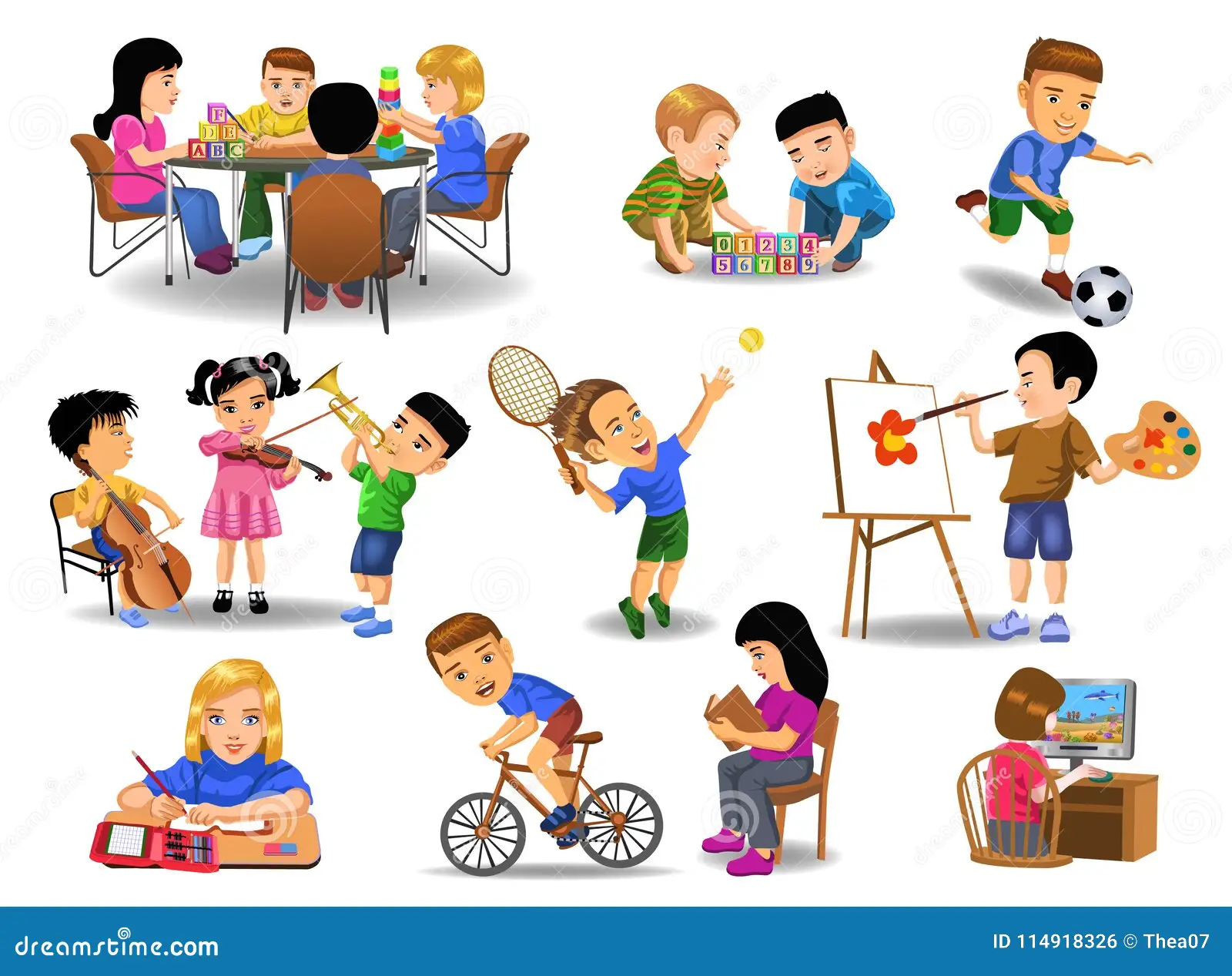
Score: 6
Total:12
Transcript.
I am Adil. After school, I do my homework. Then I have a Music lesson at home. On Sunday I help my mum. I go swimming every Monday. I like to play football with my friends in the park.
|
Assessment criteria |
Task |
Descriptor |
Mark |
|
A learner |
|||
|
Use and follow with considerable support simple words, phrases, sentences in familiar topics. |
1 |
1.F |
1 |
|
2.E |
1 |
||
|
3.D |
1 |
||
|
4.B |
1 |
||
|
|
|
5.C |
1 |
|
|
|
6.A |
1 |
|
Identify the position of speakers in an extended talk with some support. |
1 |
1. uses vocabulary words on the topic; |
1 |
|
2. pronounces words and phrases correctly; |
1 |
||
|
|
|
3. make sentences grammatically correct; |
1 |
|
|
|
4. use isolated words and basic expressions to provide personal information correctly; |
1 |
|
|
|
5. uses a modal word Can/Can’t correctly; |
1 |
|
|
|
6. intonation is generally appropriate. |
1 |
|
Total marks |
12 |
||
Summative Assessment for the unit 5“My free time”
Learner’s name_____________________
|
Assessment criteria |
Level of learning achievements |
||
|
Low |
Middle |
High |
|
|
Use and follow with considerable support simple words, phrases, sentences in reading familiar topics. |
Experiences difficulties in choosing correct answers to the tasks. Most of the answers are incorrect. |
Makes mistakes in defining the answers and understanding the text. |
Develops the task fully. Confident in identifying questions, answers questions correctly. |
|
Identify the position of speakers in an extended talk with some support. |
Experiences challenges in giving personal and factual information in a dialogue. |
Make some mistakes in a word order and pronunciation. |
Addresses the task fully, gives right answers and making the sentences correctly. |
TERM 3.
SUMMATIVE ASSESSMENT TASKS
Summative assessment for unit 6 “Health”
|
Learning objectives |
3.3.4.1 find specific information in different types of texts (postcards, posters, flyers, messages, and notices: places, time, and prices); 3.4.2.2 use words and short simple phrases to complete a written text at a sentence level. |
|
Assessment criteria |
Use and follow with considerable support simple words, phrases, sentences as a support in listening familiar topics; Apply basic words, phrases and short sentences in a talk or writing about objects. |
|
Level of thinking skills |
Application Higher order thinking skills |
|
Duration |
20 – 25 minutes |
I. Reading
Task 1: Read the words and circle/ underline the odd one out.
1. Meat, fish, banana, juice, rice
2. Egg, milk, yogurt, sandwich, apple
3. Carrots, bread, fish, tea, apple.
Score: 3
Task 2:
Read the texts and complete the sentences:
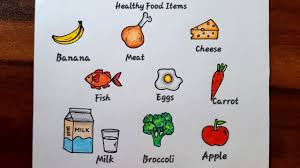
Aigul: I like meat and eggs. My favourite food is fish. I don’t like cheese but I like milk.
Ruslan: My favourite food is meat. I don’t like fish but I like broccoli and carrots. I drink tea with milk.
1.Aigul likes________ and ___________ and________.
2. She doesn’t like___________.
3. Ruslan doesn’t like ______________.
4. He likes_______ and _______.
Score: 5
II. Writing
What is your favourite food?
Begin with:
My favourite food is______________________________________
I like_______________ and________________.
I don’t like__________________________ but_________________________.
I like to drink_______________________________.
I don’t like _________________________________.
Score: 4
Total: 12
|
Assessment criteria |
Task |
Descriptor |
Mark |
|
A learner |
|||
|
Use and follow with considerable support simple words, phrases, sentences as a support in reading familiar topics. |
1 |
1. juice |
1 |
|
2. apple |
1 |
||
|
3. tea |
1 |
||
|
2 |
1. meat/eggs/milk/ fish/milk |
2 |
|
|
|
2. cheese |
1 |
|
|
|
3. fish |
1 |
|
|
|
4. meat/ broccoli/carrots/tea/milk |
1 |
|
|
Apply basic words, phrases and short sentences in a talk or writing about objects. |
1 |
1. uses vocabulary words on the topic; |
1 |
|
2. makes sentences grammatically correct; |
1 |
||
|
3. links ideas with and, but; |
1 |
||
|
4. follows word order rules in short statements; |
1 |
||
|
Total marks |
12 |
||
Rubrics for providing information to parents on the results of
Summative Assessment for the unit 6“Health”
Learner’s name_____________________
|
Assessment criteria |
Level of learning achievements |
||
|
Low |
Middle |
High |
|
|
Use and follow with considerable support simple words, phrases, sentences as a support in reading familiar topics |
Experiences difficulties in choosing correct answers to the tasks. Most of the answers are incorrect. |
Makes mistakes in defining the answers and understanding the text. |
Develops the task fully. Confident in identifying questions, answers questions correctly. |
|
Apply basic words, phrases and short sentences in a talk or writing about objects. |
Experiences challenges in giving personal and factual information in writing. |
Make some mistakes in a word order and pronunciation. |
Addresses the task fully, gives right answers and making the sentences correctly. |
TERM 4.
SUMMATIVE ASSESSMENT TASKS
Summative assessment for unit 7 “Buildings”
|
Learning objectives |
3.1.4.2 understand simple descriptions of people, actions, and objects with visual support; 3.2.2.1 use isolated words and basic expressions to provide personal information. |
|
Assessment criteria |
Use and follow with considerable support simple words, phrases, sentences in listening familiar topics. Apply topic related vocabulary in speech appropriately arranging words and phrases into well-formed sentences. |
|
Level of thinking skills |
Application Higher order thinking skills |
|
Duration |
25 minutes |
I. Listening
Watch a video: https://youtu.be/j2qKo5_cwdc and point a room:
1. Where is Lucy’s father? In the_______________.
2. Her mother is in the_______________________.
3. Where is her brother? He is in the ________________.
4. Where is the shampoo? It is in the _________________.
5. Who is in the playroom? _________________________.
6. Where is the car? It is in the ______________________.
Score: 6
II. Speaking
Speak about places in your city.
Use a plan:
1. Hello.
2. My name is…. / I am….
3. I am from…. (I am from Almaty).
4. Here are photos of my city.
5. This is a……
6. There is a (park, cinema, Zoo, Medeo).







Score: 6
Total:12
Transcript: https://youtu.be/j2qKo5_cwdc
Hello. My name is Lucy. This is my home. He is my grandfather and she is my grandmother. It is my dog. This is the kitchen. He is my father. He is cooking. This is the living room. She is my mother. She is cleaning the room. This is the bedroom. He is my brother. He is sleeping. This is the bathroom. This is the soap. This is the shampoo. This is the playroom. This is my sister.
This is the garage. This is a car.
|
Assessment criteria |
Task |
Descriptor |
Mark |
|
A learner |
|||
|
Use and follow with considerable support simple words, phrases, sentences in listening familiar topics. |
1 |
1. kitchen |
1 |
|
2. living room |
1 |
||
|
3. bedroom |
1 |
||
|
4. bathroom |
1 |
||
|
5. her sister |
1 |
||
|
6. garage |
1 |
||
|
Apply topic related vocabulary in speech appropriately arranging words and phrases into well-formed sentences. |
2 |
1. uses vocabulary words on the topic; |
1 |
|
2. pronounces words and phrases correctly; |
1 |
||
|
3. make sentences grammatically correct; |
1 |
||
|
4. use isolated words and basic expressions to provide personal information correctly; |
1 |
||
|
5. uses basic prepositions of place; |
1 |
||
|
6. intonation is generally appropriate. |
1 |
||
|
Total marks |
12 |
||
Rubrics for providing information to parents on the results of
Summative Assessment for the unit 7“Buildings”
Learner’s name_____________________
|
Assessment criteria |
Level of learning achievements |
||
|
Low |
Middle |
High |
|
|
Use and follow with considerable support simple words, phrases, sentences in listening familiar topics. |
Experiences difficulties in choosing correct answers to the tasks. Most of the answers are incorrect. |
Makes mistakes in defining the answers and understanding the text. |
Develops the task fully. Confident in identifying questions, answers questions correctly. |
|
Apply topic related vocabulary in speech appropriately arranging words and phrases into well-formed sentences. |
Experiences challenges in giving personal and factual information. |
Make some mistakes in a word order and pronunciation. |
Addresses the task fully, gives right answers and making the sentences correctly. |
TERM 4.
SUMMATIVE ASSESSMENT TASKS
Summative assessment for unit 8 “My holidays”
|
Learning objectives |
3.3.4.1 find specific information in different types of texts (postcards, posters, flyers, messages, and notices: places, time, and prices); 3.4.1.1 spell accurately a few high-frequency words; |
|
Assessment criteria |
Use and follow with considerable support simple words, phrases, sentences as a support in reading familiar topics; Apply basic words, phrases and short sentences in a talk or writing about objects. |
|
Level of thinking skills |
Knowledge and comprehension |
|
Duration |
20 - 25 minutes |
I. Reading
Task 1. Read and follow the instructions.
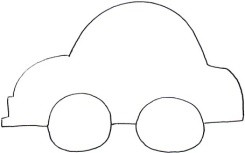

![]()
1.Colour the taxi into black.

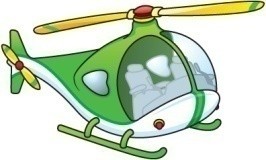
 2.Cross
the
plane.
2.Cross
the
plane.
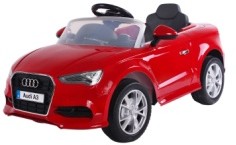 3.Circle
the
train.
3.Circle
the
train.
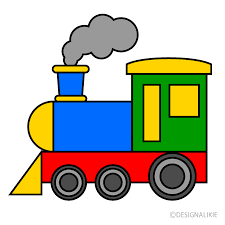
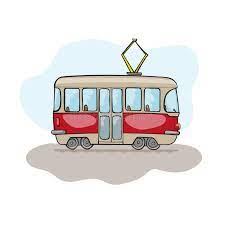
Score:3
Task 2: Read and write a missing letter/ or letters:
1. pl_ne, 2. tr_m, 3.h_lico_ter, 4. ta_i, 5. st_tion
Score: 5
II. Writing
Look, choose and describe. Use a plan:
1.Look at the bike/plane/ car.
2. It is (colour).
3. I can see a bike/ a plane/ a car/(place) at the airport/ in streets/ at home/ in the house.
4. It has got … wheels.
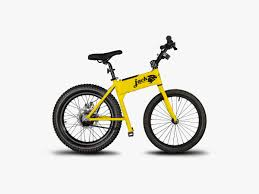

 Score:4
Score:4
Total: 12
|
Assessment criteria |
Task |
Descriptor |
Mark |
|
A learner |
|||
|
Use and follow with considerable support simple words, phrases, sentences as a support in reading familiar topics. |
1 |
1.colours the taxi into black; |
1 |
|
2. crosses the plane; |
1 |
||
|
3. circles the train. |
1 |
||
|
|
2 |
1.plane |
1 |
|
|
2.tram |
1 |
|
|
|
3. helicopter |
1 |
|
|
|
|
4.taxi |
1 |
|
|
|
5.station |
1 |
|
Apply basic words, phrases and short sentences in a talk or writing about objects. |
1 |
1. uses vocabulary words on the topic; |
1 |
|
2. makes sentences grammatically correct; |
1 |
||
|
3. applies basic rules of punctuation (use capital letters, full stops, and question marks). |
1 |
||
|
|
|
4. follows word order rules in short statements; |
1 |
|
Total marks |
12 |
||
Rubrics for providing information to parents on the results of
Summative Assessment for the unit 8“My holidays”
Learner’s name_____________________
|
Assessment criteria |
Level of learning achievements |
||
|
Low |
Middle |
High |
|
|
Use and follow with considerable support simple words, phrases, sentences in reading familiar topics; |
Experiences difficulties in choosing correct answers to the tasks. Most of the answers are incorrect. |
Makes mistakes in defining the answers and understanding the text. |
Develops the task fully. Confident in identifying questions, answers questions correctly. |
|
Apply basic words, phrases and short sentences in a talk or writing about objects. |
Experiences challenges in giving personal and factual information. |
Make some mistakes in a word order and pronunciation. |
Addresses the task fully, gives right answers and making the sentences correctly. |















